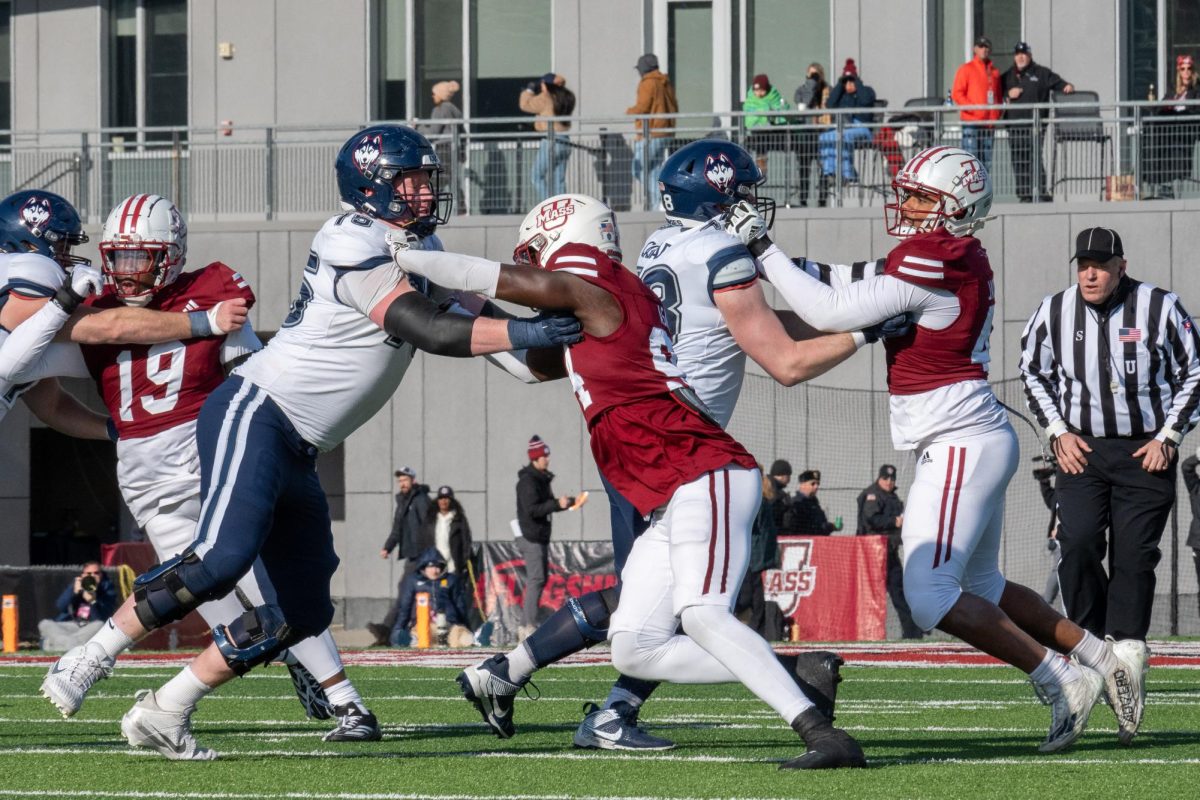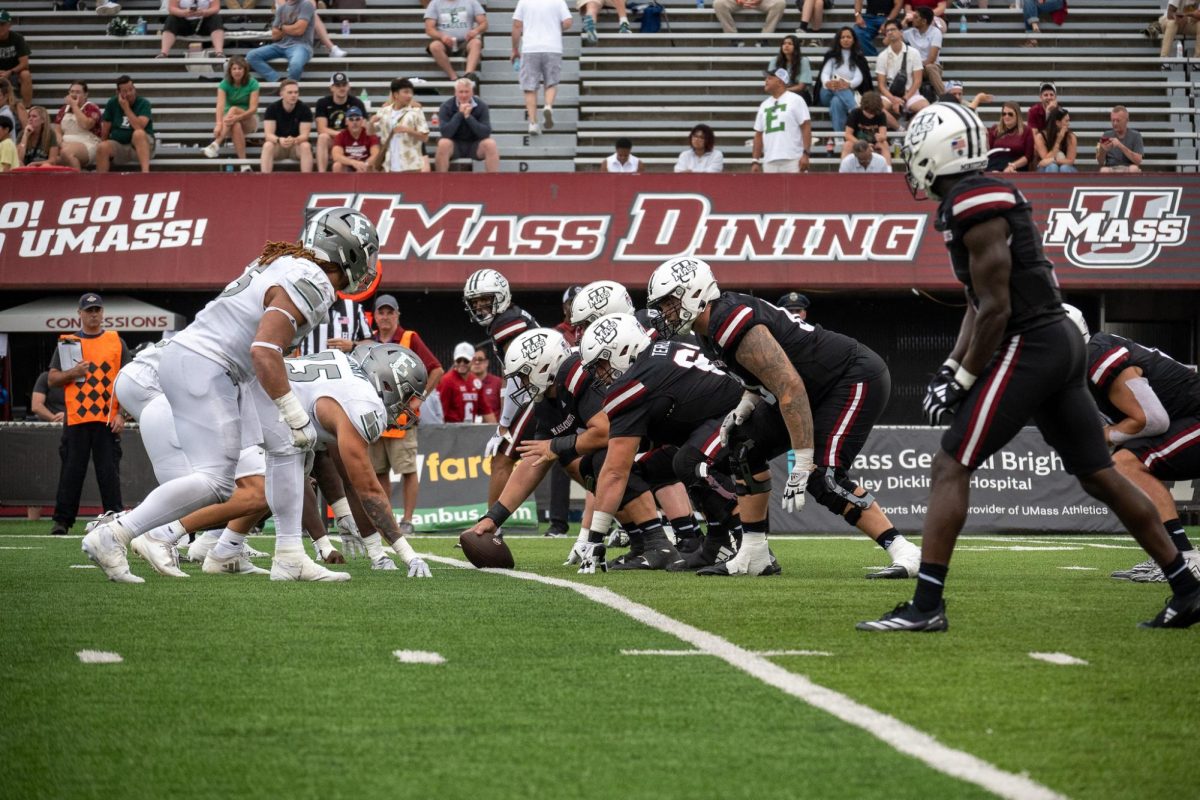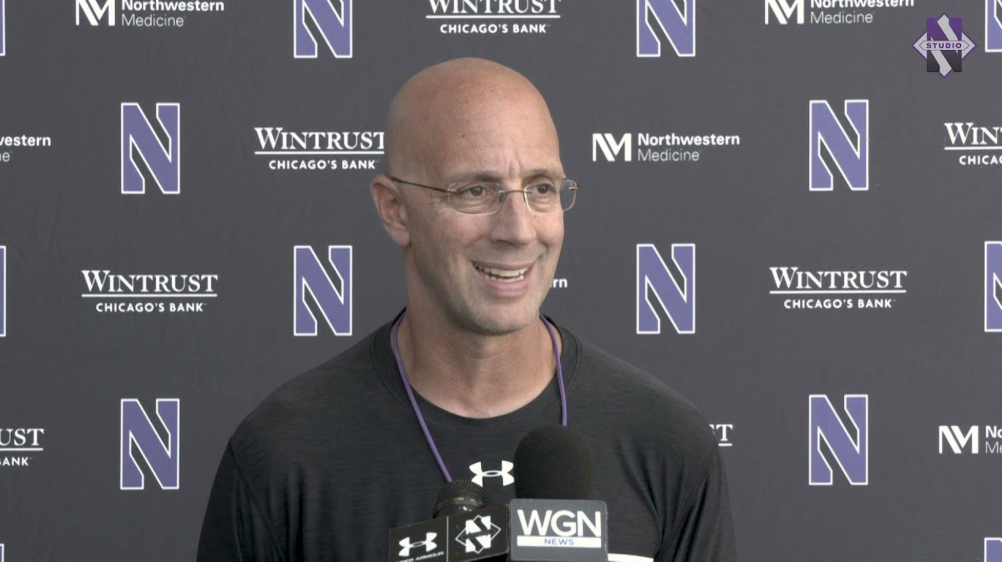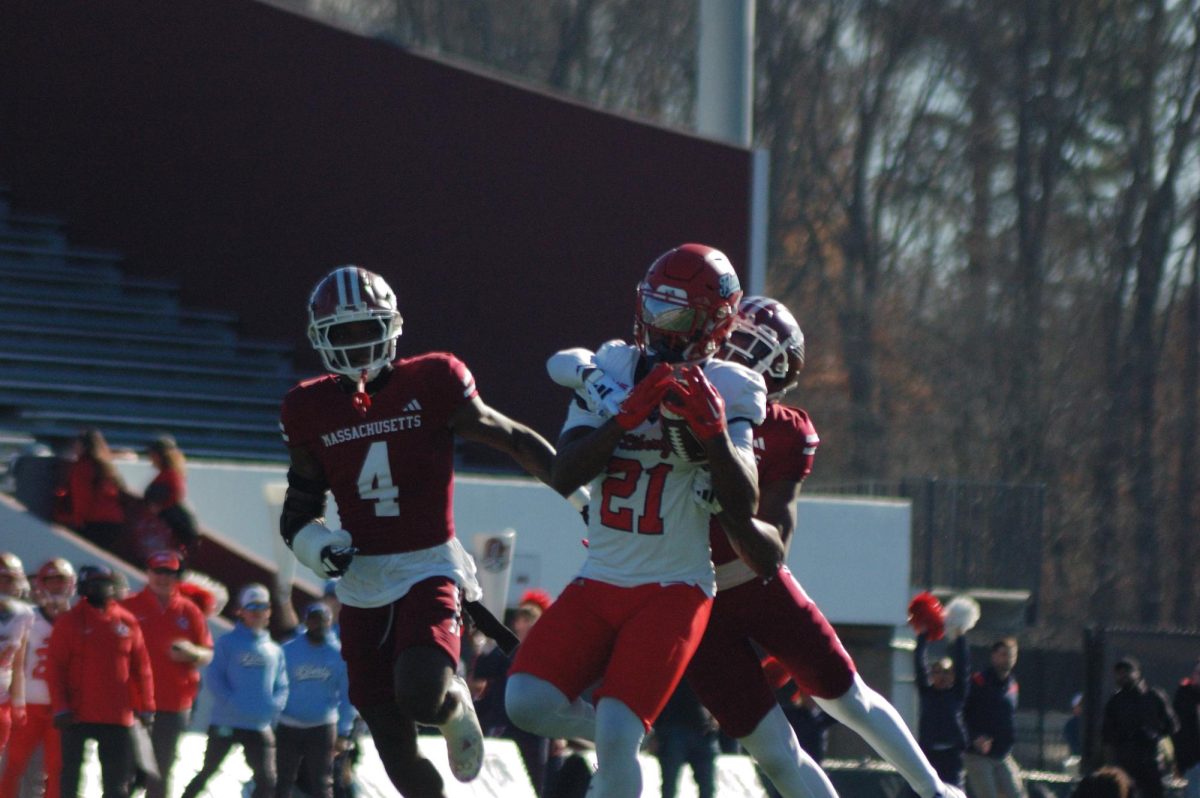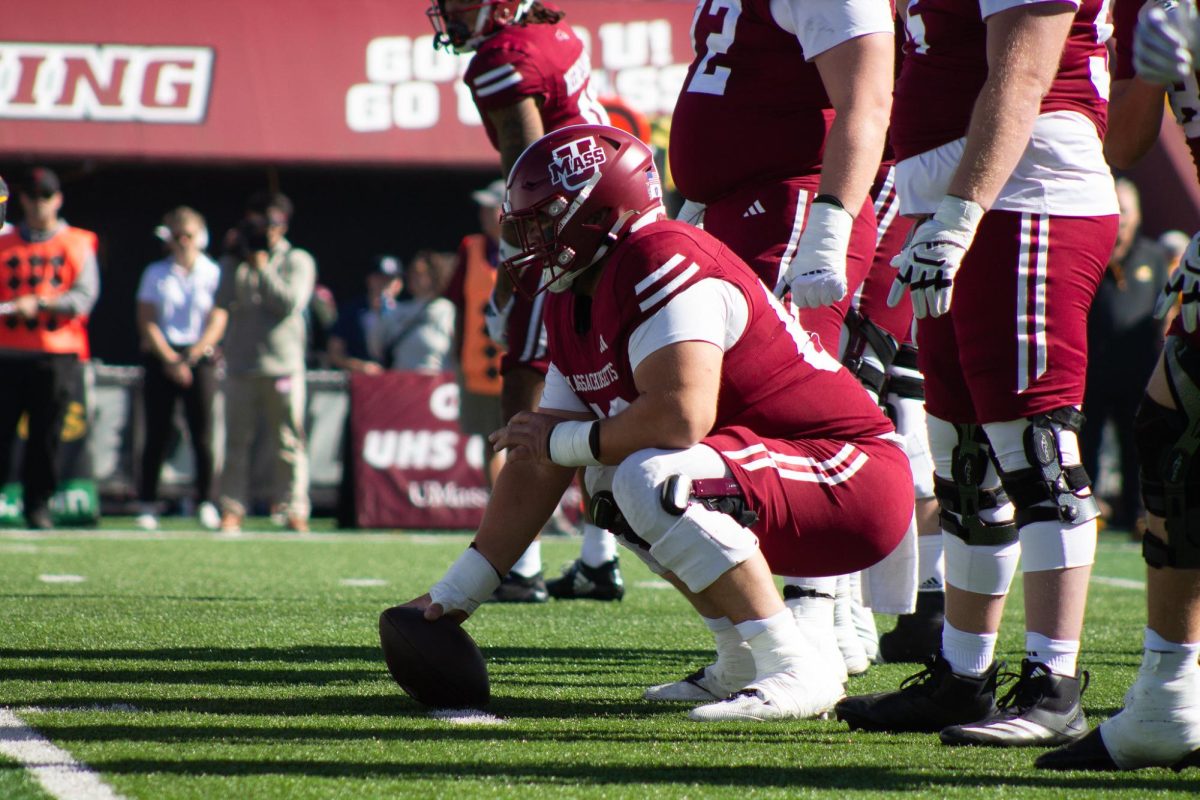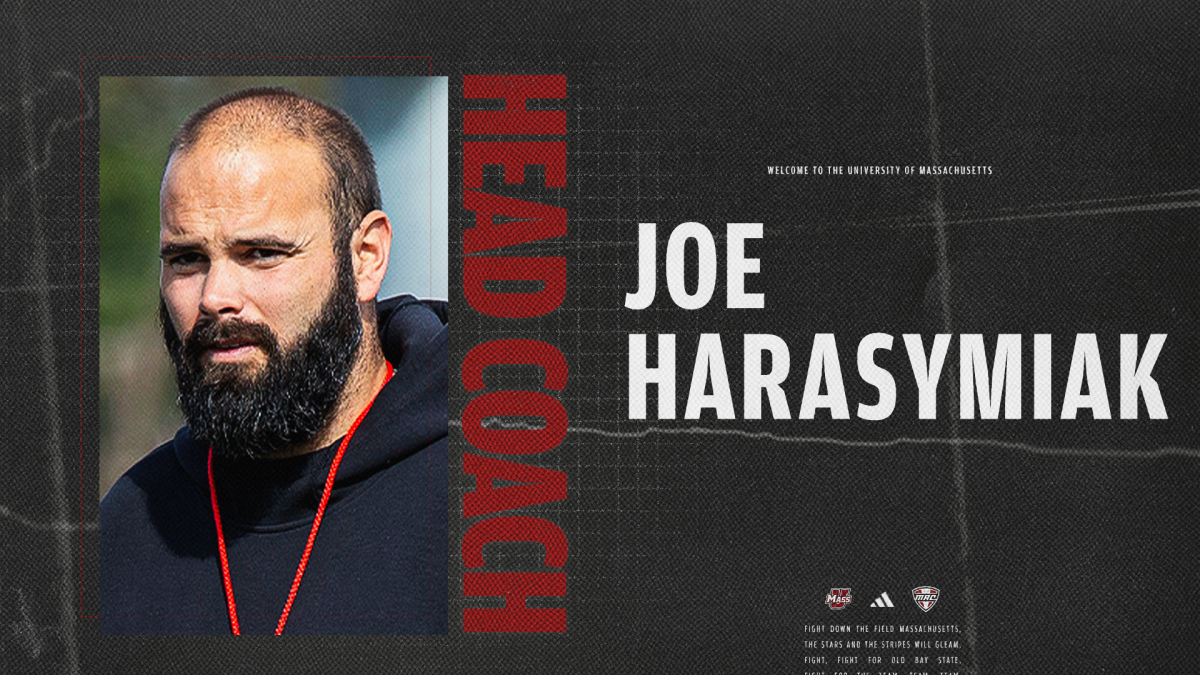
The University of Massachusetts officially announced its move to the Football Bowl Subdivision during a press conference at Gillette Stadium on Wednesday.
UMass, which previously played for the Football Championship Subdivision in the Colonial Athletic Association, joins the Mid-American Conference on a transitional basis for football only.
The announcement was made by Chancellor Robert C. Holub, who expressed how the move would gain UMass greater national recognition.
“This move advances our aspirations to assume our rightful place in the upper echelon of national public research universities,” said Holub. “Our move to the top of the college football world now becomes part of our overall move towards ever greater national prominence.”
Joined by UMass Athletic Director John McCutcheon, MAC Commissioner Jon A. Steinbrecher and Robert Kraft, owner of the New England Patriots and Gillette Stadium, Holub discussed the financial and logistic ramifications of the move.
“We have looked at all aspects of this transition to the FBS very carefully and we believe, after an initial investment and, in a very few years, we will be using less funds from our general budget to support athletics than we do now,” said Holub.
Over the next two years, UMass will be in a transitional period and its full membership with the MAC will be contingent on home attendance and its adherence to scholarship and scheduling requirements, said Steinbrecher.
According to McCutcheon, UMass will play its entire home schedule during the 2012 and 2013 seasons at Gillette Stadium.
“We do want to do some improvements in our stadium on campus,” said McCutcheon. “There’s a chance that we could move one or two games back there when it’s in a position where we can host [Division] 1-A caliber games. The primary home for UMass football for the foreseeable future, I think, is going to be here at Gillette Stadium.”
Involvement in the FBS will require UMass to average an attendance of 15,000 fans per home game. McGuirk Stadium, the home field of UMass football since 1965, holds 17,000 fans at full capacity.
Although McCutcheon did not rule out the possibility of playing a home game at McGuirk Stadium in the 2012 season, he does believe it is unlikely without renovations to the current facilities.
“To compete adequately at the FBS level, we need to have adequate training facilities on campus,” said McCutcheon. “That will be the focus of our fundraising efforts over the next several years. By the 2014 season, we hope to have in place on campus a new training facility for football that will be on par with anybody in the conference and several across the country.”
The deal to make Foxboro the Minutemen’s new football home was made with Kraft, who said he is just as interested in benefiting UMass as profiting himself.
“Obviously, if we attract crowds similar to [those that] would go to an NFL game, that would work out well for everybody,” said Kraft. “That’s why we’re doing this. To try to help UMass become big time, without the University having to invest in the capital assets to be able to play big time.”
McCutcheon added, “We need to sell tickets, we need to generate more income from sponsorships and we need to schedule smart with our [non-]conference games and generate income revenue from guarantees and those are really the primary income sources that will make this [work].”
UMass will begin playing a full MAC schedule in 2012, but will be ineligible for a conference title or bowl consideration until 2013. It will also not be eligible for postseason play during the 2011 season.
Currently, the MAC has five different bowl agreements through the 2013 season in The Little Caesar’s Pizza Bowl, GoDaddy.com Bowl, uDrove Humanitarian Bowl, BBVA Compass Bowl, Ticket City Bowl (2012) and the New Mexico Bowl (2013).
The MAC also has a national television contract with ESPN that requires a minimum of 15 regular-season games be played in addition to the MAC Football Championship Game.
With the addition of UMass, the MAC has 14 members in its football conference.
UMass will be required to schedule eight games against conference opponents, including six games inside its division and two games outside of it. According to Steinbrecher, divisional alignments have not been determined yet, but will be discussed at the league’s “spring meetings” at the end of May.
As part of the agreement, UMass will schedule four games for men’s and women’s basketball against MAC opponents.
UMass will play its 11-game regular season schedule in 2011. The potential is now open to add another game against an FBS foe but, according to McCutcheon, it is unlikely it will happen this late in the offseason.
As part of the NCAA requirements, UMass will increase its number of football scholarships from 63 to 85. According to Title IX, that means more scholarships will need to be given towards women’s athletic programs.
Holub is confident that, eventually, the move will end with the university spending less funds from its general budget to support athletics.
“Obviously, we get more revenue from the MAC than the CAA, so we’re doing things on a comparative basis,” said Holub. “What things will look like in five years in the conference that we’re in and what things are going to look like in five years in the MAC. Doing that comparison, we feel that [with this move] we will be contributing less from campus funds to athletics than we do now.”
Dan Gigliotti can be reached at [email protected].







